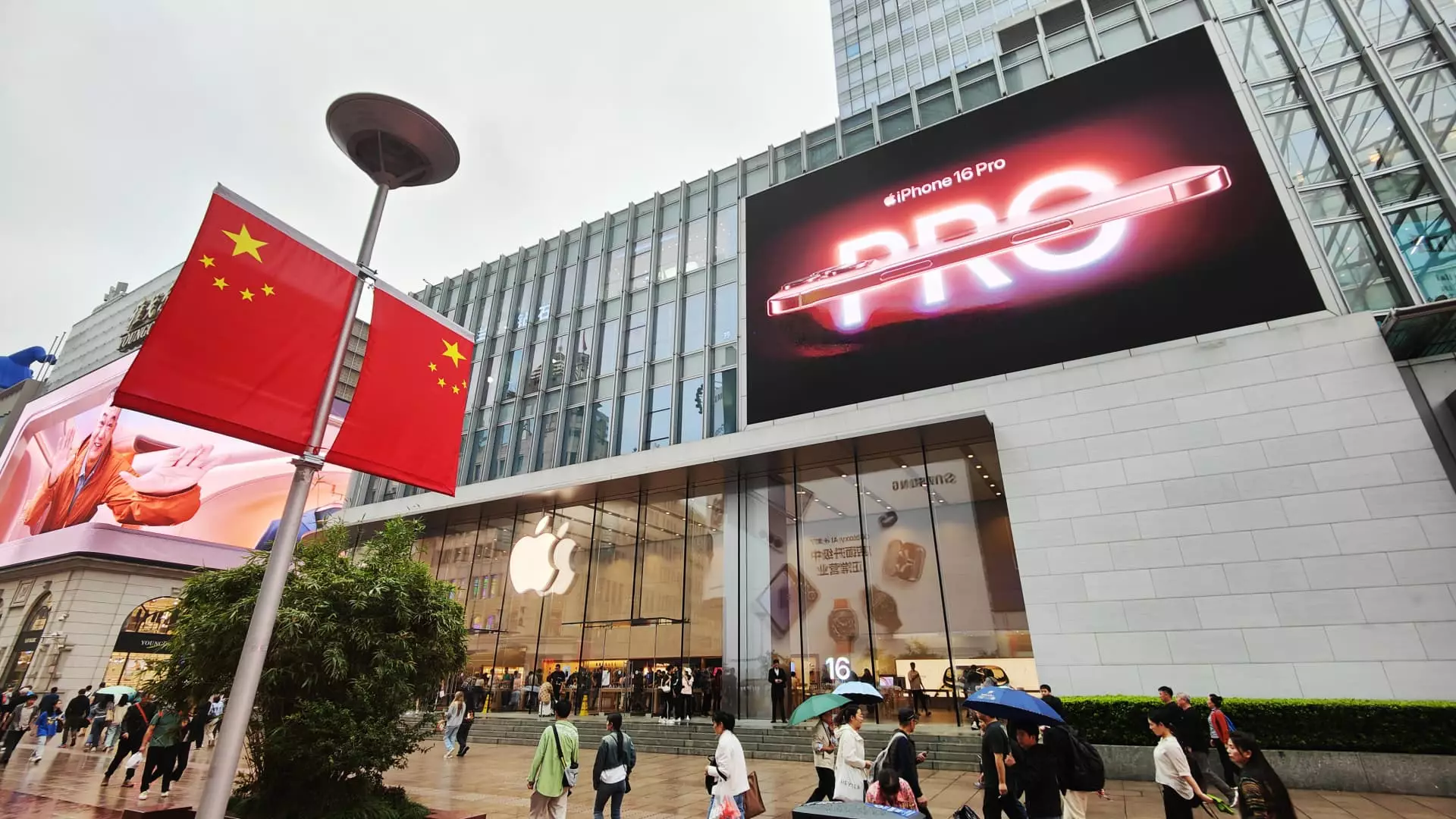The smartphone market in China has undergone a significant transformation, particularly for foreign brands. Recent data disclosed that sales of international phone brands in the country sharply declined in November, marking a 47.4% decrease compared to the previous year and a staggering 51% drop from October 2023. Such figures, derived from the China Academy of Information and Communications Technology (CAICT), depict a disheartening trend for foreign manufacturers, whose cumulative shipments reached merely 3.04 million units in that month.
This downturn poses a severe challenge for Apple, the leading foreign smartphone vendor in China, whose dominance in the region has been increasingly threatened. Although CAICT does not break down the statistics for individual companies, it is evident that Apple constitutes a sizable portion of foreign mobile shipments, with competitors like Samsung barely making a mark in the market share. The surge of domestic brands in this landscape highlights a crucial shift in consumer preferences and reveals a landscape littered with obstacles for international players.
One of the most notable competitors that have garnered attention is Huawei. Following a tumultuous period due to U.S. sanctions that hampered its handset business, Huawei has made a striking comeback, introducing premium smartphones that have resonated well with Chinese consumers. The company’s resurgence in 2023, particularly during the third quarter, has outperformed Apple and signified the growing loyalty among local consumers towards homegrown brand offerings.
The success of Huawei and other local players has emphasized the importance of innovation and local relevance in product offerings. As they roll out devices equipped with advanced features, domestic brands have begun to capitalize on elements integral to the preferences of Chinese consumers, which have increasingly leaned towards localized solutions over international options.
In an effort to regain its footing in the Chinese market, Apple has unveiled its iPhone 16 series, which made its debut in September 2023. Fueled by promises of new artificial intelligence (AI) capabilities through Apple Intelligence, the company hopes to reignite consumer enthusiasm. However, this AI software has yet to be launched in China due to stringent local regulations governing AI technologies. In contrast, local manufacturers are proactively showcasing their AI features, further intensifying the competition that Apple faces in the market.
Recognizing the strategic importance of the Chinese market, Apple CEO Tim Cook has embarked on multiple visits to the country, seeking to forge partnerships with local enterprises to enhance Apple Intelligence. The engagement efforts underscore the challenges that Apple must navigate to align its offerings with Chinese consumer demands.
As a way to entice consumers amid these pressures, Apple has announced plans for promotional discounts on the iPhone 16 coinciding with the upcoming Lunar New Year holidays. This strategy aims to attract customers during a season known for consumer spending, demonstrating Apple’s adaptability in a rapidly changing market.
The decline in foreign phone shipments reflects a deeper narrative of market dynamics, where domestic brands like Huawei are capitalizing on their home-ground advantages while Apple grapples with regulatory constraints and shifting consumer preferences. Whether Apple can reclaim its footing remains to be seen, but it is clear that the competitive landscape in China’s smartphone market is evolving rapidly.


Leave a Reply